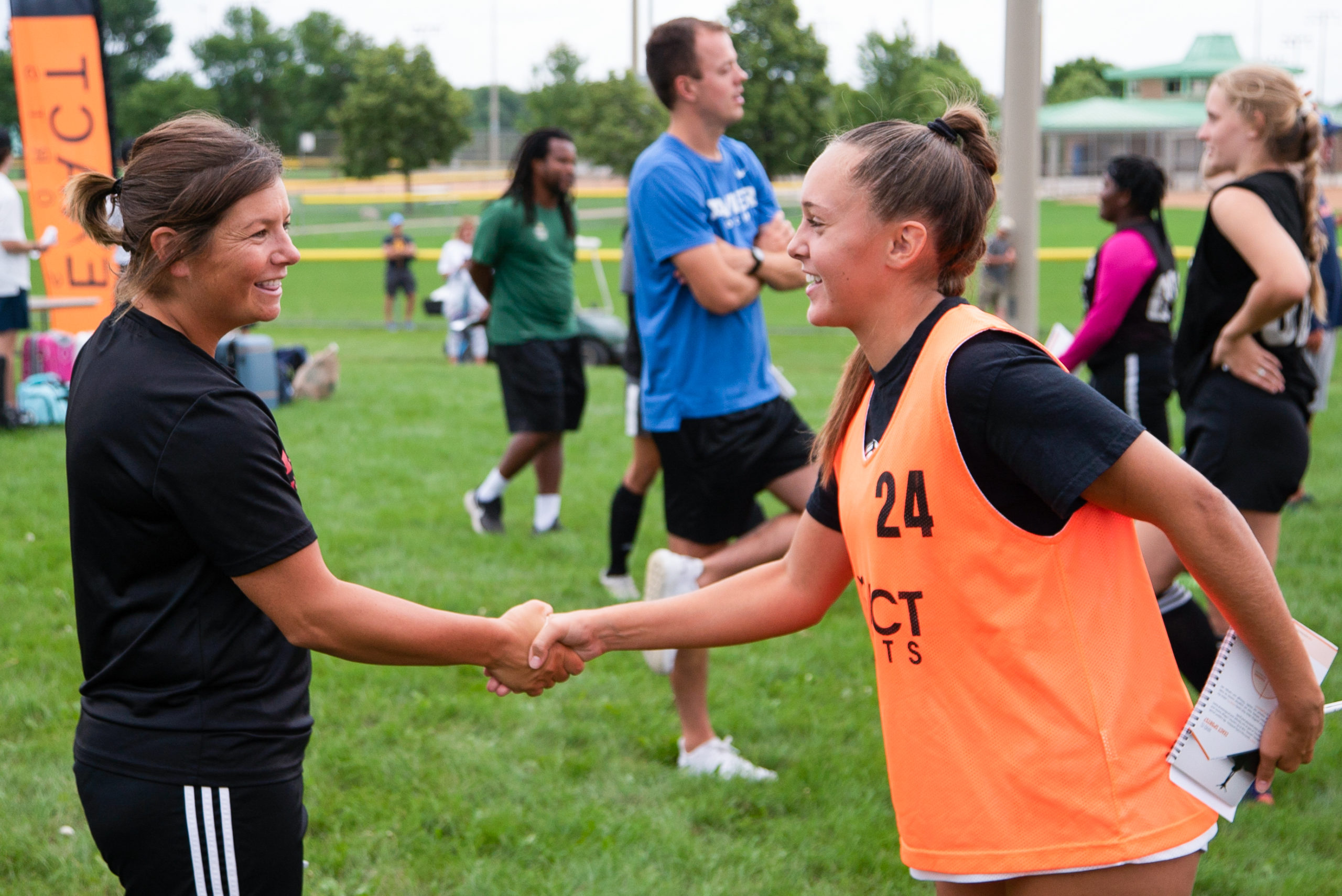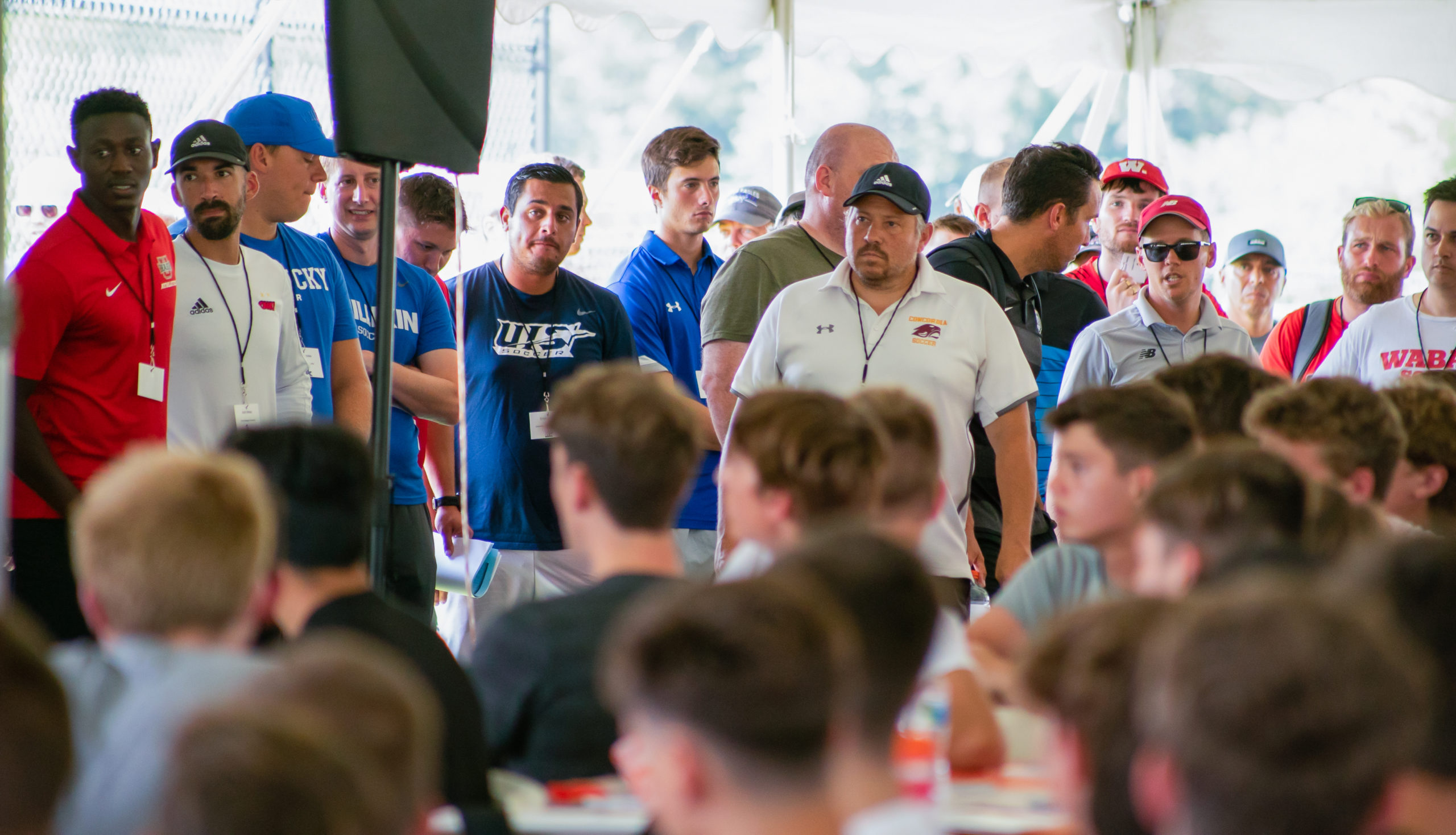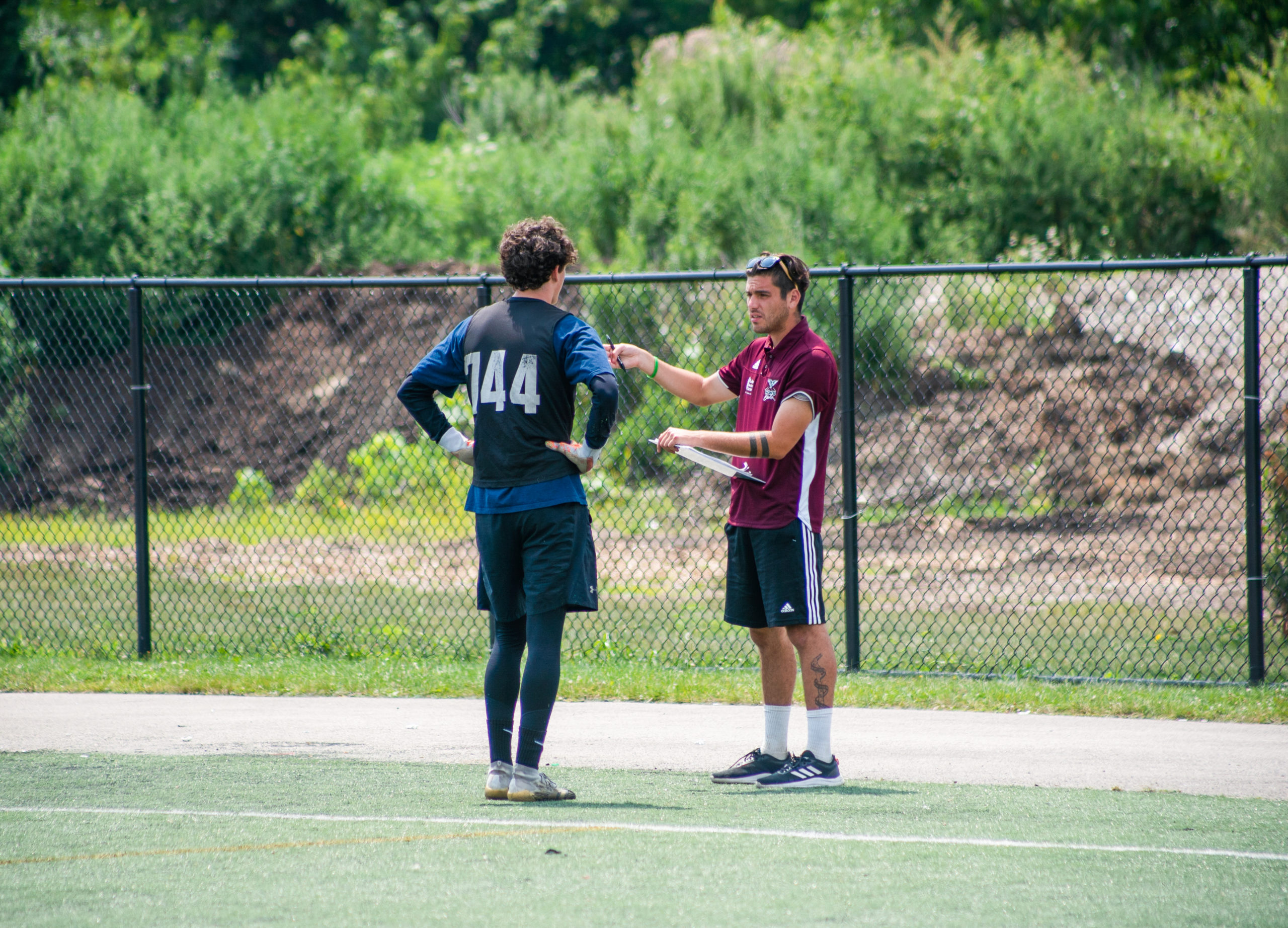
The College Recruiting Process
As someone who went through the recruiting process in High School, witnessed many fellow teammates go through it, being a part of my brother's recruiting process, and now being a college women's soccer coach and seeing so many young players and parents walk through it I was very excited to get the opportunity to write on the topic of recruitment. There are many amazing clubs, high schools, and coaches who do a great job of explaining the recruitment process, but for many parents and players it is a very confusing and difficult process. I hope to provide some clarity.
The recruitment process can be defined as the time period of a high school athlete deciding on which school they will choose to attend and compete for as well as the time period that a college coach pursues a high school athlete to compete for them at the next level. A phrase you may hear thrown around a lot is "I am being recruited".
To be clear, the recruitment process for a specific University begins when the coach of that University reaches out to an athlete to let them know they are interested in having them play for them, or invite the athlete to a recruit visit on their college campus.
Can You Play College Sports?
Take the 4 minute quiz to see if you have what it takes for NCAA sports.
What College Coaches Look For In Recruits
A couple of things coaches are looking for when recruiting are the following: talent, athleticism, sportsmanship, academic success, intended major, and what kind of person you are on and off the field. Talent of course is one of the top things coaches are assessing, because at the end of the day you have to be able to compete at their school's level of play. Along with talent coaches are looking to see if you have the athletic ability to compete at their school. Are you fast enough, strong enough, can you last an entire game, etc.? This varies dependent upon position and needs from each program dependent upon their style of play.
Coaches do watch sportsmanship as well, they see how you treat opponents, referees, amount of cards you get per season. At the end of the day coaches are putting you in their jersey to represent their University and many Universities hold a zero tolerance policy for poor sportsmanship. Academic success and intended major are also very high on the list of things coaches look at.
When a coach looks at your high school GPA and test scores they are often looking to see 1. Can you get into their university?
2. Can you qualify for academic scholarships (if you can, that is a HUGE help, because you will make a coach's scholarship money go further)
3. Are you able to handle yourself in the classroom. No one wants to have to babysit a player off the field and in the classroom, and the NCAA has a GPA minimum to be able to play every year. They are also looking at your major to make sure their school even offers it. You never want to compromise on your major to play at a University, because if you happen to get injured and your career gets cut short you never want to be stuck in a major that you don't even like. Last, but certainly not least, coaches want to make sure you are someone they want representing their program. Often this means reaching out to coaches, teachers, other teammates, checking social media, watching the way you interact with teammates, fans, and coaches.

Top 5 Steps For College Recruiting
5 steps I strongly believe will help you in the recruiting process and have proven to be effective for myself and many other student athletes I have mentored in the past.
1. Create a list of what you want in a school and soccer program and take that list on all your visits. It sounds silly but "having trees on campus" was at the top of my list and was one of my favorite things about my campus!
2. Visit as many schools and see as many teams play as you can. You really want to visit all levels from Division 1 to Division 3 to make a good decision. Once you visit their campuses and see their team play narrow down your top schools and start to attend their camps and email their coaches to see if they think you are a good fit as well.
3. Reach out to coaches. Do not hesitate to email coaches repeatedly, we get a ton of emails every day and sometimes it takes that same name popping up repeatedly for us to really take notice. In your email include your name, graduation year, any film you may have, any upcoming tournaments, etc. A side note on reaching out to coaches: make sure YOU are emailing and calling the coaches, not your parents. This is your future, not theirs and it says a lot about a player who takes this initiative.
4. Look up recruiting rules for each division. Often times players become discouraged because a coach does not reach out to them when the truth is they can't due to rules. So ask your club coach or look up the rules on ncaa.com for each division.
5. Last but not least use your resources. Your best resource is your club coach. Let them know where you want to go and what your goals are and encourage them to reach out to those coaches on your behalf. Also use your school guidance counselor to help you determine what admission requirements their are for the schools you are looking at.

Bottomline
All of these things are important when walking through the recruiting process, but know that it is not as scary as it may seem. Never be afraid to ask questions, be open to different schools that you may never have heard of, and have a clear vision of what type of environment you are looking for. No coach ever wants you to get to their program and decide you want to transfer because you didn't take the time to get to know them beforehand.
